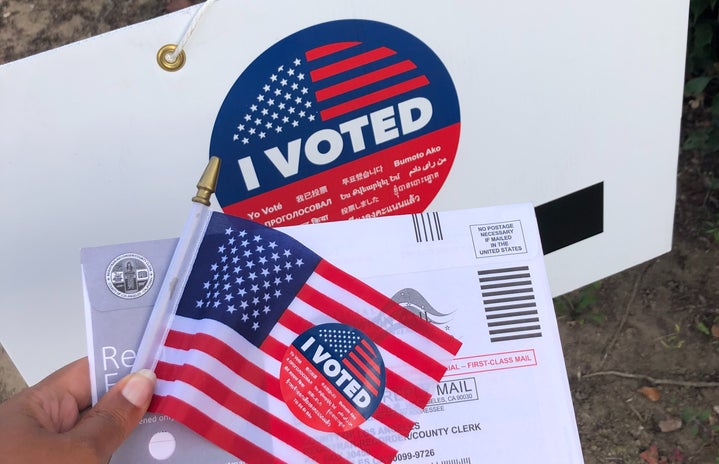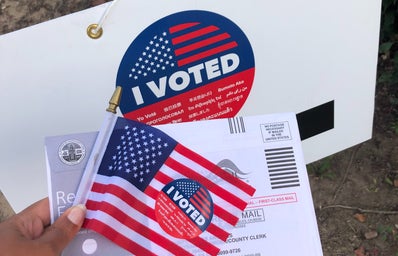In recent months, and even more so in the weeks that have passed, it has become increasingly difficult to avoid politics. However, especially for those just reaching the brink of adulthood such as all of us in university, it can still be all too easy to dismiss the world of politics as something that is not our concern. Most people know the saying, ignorance is bliss. What more people need to be realizing, however, is that ignorance cannot become our reality, no matter how much easier it is. As easy as it may be to try and forget the politics around us, we cannot allow ourselves to simply chose to not take part in it any longer. Quite frankly, politics affect us all in ways that many of us don’t realize we take for granted.
Many things that most of us take for granted are decided by politics and we don’t even realize it. When you hear people say that politics are everywhere around us, they aren’t kidding. Even the smallest choices that you make, like going to the grocery store or going to school, are only possible because someone has made the active political choice that allows you to do this. One example that I am sure all Canadians can relate to involves the snow that lines the streets here in the winter. Many people that have to walk to get from place to place struggle in the winter months because the snow ends up piled high on the streets and sidewalks causing a five-minute walk to feel like half an hour. This is a direct result of the actions, or lack thereof, of municipal politics. Certain cities in New York have it even worse however since they don’t have laws that say the sidewalks must be cleared, and this leaves the residents of those areas forced to walk dangerously alongside the cars in the streets. By making the choice to remain apolitical, you are also allowing city officials to continually be held unaccountable for their actions. City officials need to be held accountable for the poor decisions they make, and as a citizen that is affected by their decisions, it is your job to hold them accountable.
Take a minute to ask yourself, how are your political leaders ensuring that your rights are met? If you live within a walking distance of medical centers and healthcare, public schools and grocery stores, it means that the political leaders in your area have invested the time and money into your community to make it more desirable and liveable for citizens. However, what if this wasn’t the case? When the basic needs of a community aren’t being met, it is crucial that you have the proper information to make an educated vote for who you want in charge, and more importantly who you don’t. If you don’t make a choice, it just means you’ve chosen to let someone else make the choice for you. Being apolitical means you’re not taking the privilege to choose how your life goes. While you may not feel like getting involved in politics because you don’t feel that your immediate livelihood is in danger, it may be the case for the people around you. It seems as though you are telling your friends that you aren’t concerned about their housing rights, job rights or human rights, even though you probably are. Taking the privilege that you have and putting it to good use doesn’t only affect you.
The one main path that most apolitical people choose to take is that of not voting. More often than not, this comes from a place of feeling unsure, uneducated and uninformed on the subject at hand. If you are one of these people and feel as though your vote is futile, you’re not alone. There is a study by Statistics Canada that proves this, and while it may be a little dated, the study is still very accurate. According to Statistics Canada, only about 60% of eligible voters aged 20-24 cast a ballot in the 2013 election. Compare this to the over 92% in the age group of 75 and older who cast a ballot in the 2013 election. Age plays a large factor but it’s often due to the younger generations feeling uninformed and afraid of making a decision. It’s also possible that the younger generation just simply doesn’t care enough about the issues to bother taking part. Taking the time to ask questions about political issues is important. Being willing to take the time to learn about new problems is a sign of becoming a mature adult. Just because your parents or friends voted one way doesn’t mean that you have to do the same. There are endless ways to begin getting involved in politics. Politics are in podcasts, shows, newspapers, on a sign on your neighbours’ front lawn and so many other places. Once the younger generations start to realize how involved they are even when they think they aren’t, I am sure their apolitical stance will sway. Being educated on issues that matter is what will help us all in the long run.
Politics are a part of our education systems, jobs, communities, businesses… it’s everywhere around us. A single vote has more of an effect than most of us choose to believe. We all have opinions and we all have a duty to remain aware of what is going on around us. Withholding a vote is the most dangerous course of action that one can make. Next time an election comes around to where you live, do your due diligence as a citizen and get involved.
References
Valeii, Kathi. “Why Cities, Not Individuals, Should Clear Snow From Sidewalks.” Bloomberg.com, Bloomberg, 11 Jan. 2019.
Government of Canada, Statistics Canada. “Political Participation and Civic Engagement of Youth.” Government of Canada, Statistics Canada, 27 Nov. 2015.



